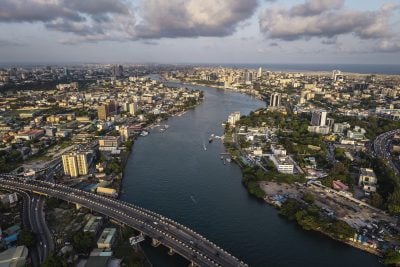Mozambique’s inexorable slide towards a sovereign default has almost reached its conclusion. After the long-drawn-out uncovering of a web of secret loans to state-owned companies, its government officially missed a $178 million interest payment on 23rd May. The country, where huge sums were borrowed in secret and promptly vanished, now faces an economic crisis of staggering proportions. However, Mozambique is only the beginning – since 2007, a series of other debt time bombs have been planted in public finances across sub-Saharan Africa. As these bombs tick closer to detonation, Mozambique’s example will loom ever larger in the minds of investors and the threat of contagion will spread.
Bullet payments
In the decade since receiving multilateral debt relief, African governments resumed the habit of borrowing heavily. In particular, they began to issue Eurobonds (non-concessional dollar-denominated bonds raised on international markets), raising over $20bn in the period – slightly less than the GDP of Uganda.
With the exception of Mozambique, most countries have so far managed to keep up their interest payments, although these often amount to over 10% of government revenues. Zambia, for instance, spends more on debt service than on health.
However, the real problem is the “bullet payments” – lump sum repayments of the loan’s principal, due once the bond matures.
In many cases, these amount to $1bn or more. Even smaller payments could place a huge strain on government finances and foreign currency reserves. Gabon is due to repay around $390m next year, having swapped most of its $1bn 2007 Eurobond for newer debt. This amounts to 20% of current foreign reserves and well over 10% of government revenue.
Thus, repayment will entail a huge risk of a balance of payments crisis. Heavily indebted African nations therefore have two options to avoid this, neither of which are particularly attractive.
They could ask the IMF for assistance, as Ghana, Angola and Mozambique already have. However, IMF support may not be sufficient and some governments will certainly try to resist this option given their previous experience of IMF structural adjustment programmes.
This leaves one alternative – refinancing debt with more loans. The implosion of Mozambique’s public finances has made this significantly harder. Interest rates on African Eurobonds have already been steadily increasing. Ghana’s initial offering in 2007 paid 8.5%, which rose to 10.75% when the government refinanced the debt in 2015. Similarly, yields on Zambian bonds rose from 5.625% in 2012 to 8.97% just three years later.Toxic bonds
Now, the Mozambican crisis has provided investors with a sharp lesson in the dangers attached to buying bonds issued by African governments. As a result, interest rates will be higher still, and governments with high debt levels may even struggle to place new bond offerings as African debt becomes increasingly perceived as toxic. Such a perception, whether well-grounded or not, is devastating, given the huge influence of perceptions on investment decisions. If African bonds are contaminated by the example of Mozambique, investors will simply keep their money away from the continent.
This is a particular risk for Ghana, which plans to sell a $1bn Eurobond this year, partly to refinance old debt and partly to cover its yawning budget deficit. Unlike last year, however, Ghana has no external guarantee for the bond.
Failure to sell would force Ghana to borrow heavily on domestic markets – where interest rates are an eye-watering 25% – and further toxify other African bonds in the eyes of investors. If the bond does sell, the performance of Ghanaian bonds on secondary markets suggests that the government can expect to pay 12.5%. This will add an even heavier burden to interest payments that already devour over a quarter of government revenues.
This situation was never sustainable. Heavily indebted governments like Ghana, Gabon and Zambia lack the resources to make bullet payments, and cannot continually refinance their loans at ever higher interest rates. Mozambican debt contagion will highlight the risks involved in buying African Eurobonds, thus pushing interest rates up even faster. This will significantly shorten the time frame within which these countries can continue to refinance their debts in this way.
Faced with the impossible situation of diverting an ever-increasing proportion of revenues from public services to interest payments, further defaults and IMF interventions are almost inevitable. Ghana and Gabon are likely to be next in line, as they were among the earliest Eurobond issuers, but Zambia will also struggle and the period between 2021 and 2025 – when most Eurobonds fall due – will be a fraught one for both governments and investors. The fuse on the debt time bombs is lit and there seems no viable way to put it out.
Chris McKeon is Africa Analyst at risk consultancy Verisk Maplecroft
Want to continue reading? Subscribe today.
You've read all your free articles for this month! Subscribe now to enjoy full access to our content.
Digital Monthly
£8.00 / month
Receive full unlimited access to our articles, opinions, podcasts and more.
Digital Yearly
£70.00 / year
Our best value offer - save £26 and gain access to all of our digital content for an entire year!
 Sign in with Google
Sign in with Google 


